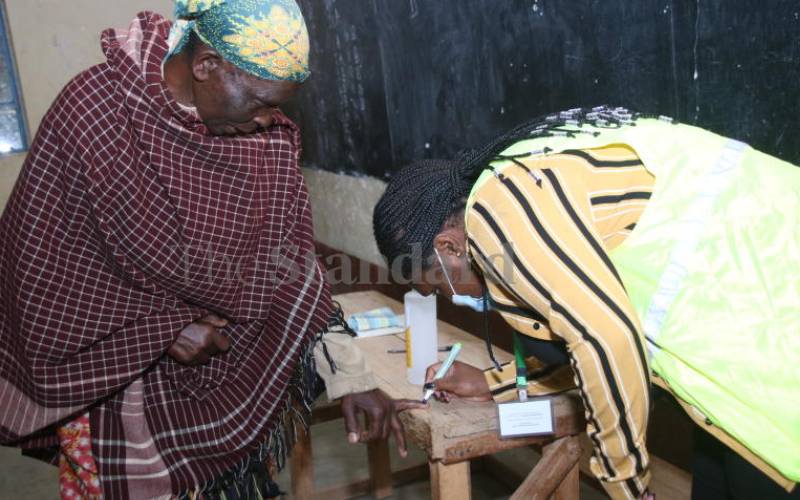×
The Standard e-Paper
Join Thousands Daily

Monicah Mbula,69, after casting her vote at Kalunga Primary School in Kathiani, Machakos. March 18, 2021. [David Gichuru, Standard]
In recent days, calls by some politicians for elections to be postponed have intensified. Reasons for these calls include allowing adequate time for the Independent Electoral and Boundaries Commission (IEBC) to delimit boundaries as envisaged in law.